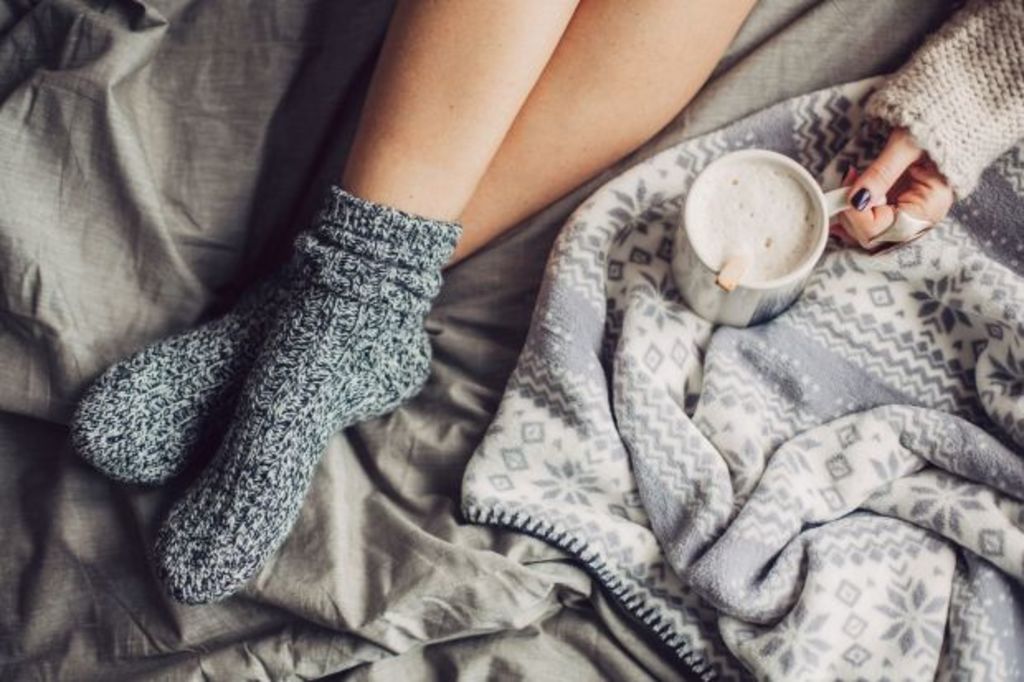Is your home making you sick? How to stop the spread of germs this winter

Home sweet home becomes far less sweet when you realise that your home is the very place that’s making you feel unwell.
Throughout each room of your home, there’s an opportunity for germs to spread and bacteria to grow.
That might sound pretty gross – but the good news is that there are lots of things you can do to prevent the spread of germs around your home, and help you stay healthy this winter.
Let fresh air into your home
 Open windows to let fresh air in. Photo: Stocksy
Open windows to let fresh air in. Photo: Stocksy
Never underestimate the power of simple fresh air.
“Open up your doors and windows every day, even if it’s cold. Ideally morning and night,” says Lucinda Curran, a building biologist at Eco Health Solutions. She adds that airing your home helps to:
- Dilute the level of contaminants in your home, like gases from heaters and toxins in the wood you’re burning in the fireplace.
- Clear out any colds or gastro bugs that someone in your household has brought in, and
- Dry out the moisture created by heating your home, and from the breathing and sweating of the people in your place. This ongoing moisture can cause mould.
Mould has been linked to nasal congestion, wheezing, chest tightness, coughing, throat irritation, reduced lung function and chronic health problems.
But if you don’t want to leave your house open for a long time in the cool weather, it’s good to know that it doesn’t take much time to make a healthy difference to your home.
“If you open a window widely and open a door, it can take as little as two minutes to exchange the air in that room,” Curran says. “If you just do a lap to open up every door and window, and then turn around to do another lap to close everything up again – you have a house full of fresh air.”
Wipe down your windows
 It pays to wipe your windows down often. Photo: iStock
It pays to wipe your windows down often. Photo: iStock
After heating your home you can end up with condensation on the inside of the windows. This sometimes happens in the bedroom in the mornings, too.
“We also create a lot of moisture just being in our homes. For example, we’re in our bedrooms for eight hours under the covers, breathing and sweating, so ventilation to dry it all out is really important.
“Go around with a dry microfiber cloth in the mornings and wipe the windows down.”
Get a dehumidifier into your home
 Ariadry compact dehumidifier. Photo: De’Longhi
Ariadry compact dehumidifier. Photo: De’Longhi
If your home is gathering condensation or you’re finding mould spots, a dehumidifier can make a big difference.
“A lot of us are getting sick in winter, and everybody’s been indoctrinated to pull out the humidifiers, especially for our kids. But they actually create more problems. Very few people say a humidifier helps their children, but they do it anyway because they’ve always been told to do it,” Curran says.
“It’s far better to get a dehumidifier to take the moisture out of the air, which can prevent mould growth.”
De’Longhi’s Ariadry compact dehumidifier is one of the brand’s most powerful units and is capable of removing 30 litres a day of excess moisture from a room. With a 24-hour timer, it can automatically switch on or off, giving you the ability to control the room’s excess air moisture when you’re not even there.
Operational in temperatures as low as 2 degrees, the Ariadry works in cold, damp rooms as well as in hot and humid environments.
Don’t make your bed
 Who knew not making your bed could be good for you? Photo: Stocksy
Who knew not making your bed could be good for you? Photo: Stocksy
This is good news for those of us with an aversion to making our beds in the morning. As it turns out, it’s healthier to unmake your bed.
“Every single day, pull the covers right back [no need to remove the sheets daily] to let the mattress air out. We shed a lot of skin cells in bed and, where there’s a lot of skin cells, there’s a lot of dust mites,” Curran says.
Dust mites are a major trigger for people with asthma and allergies.
“It’s also a good idea to take off your bedding to wash it on a weekly basis, and vacuum the mattress to get rid of the dust mites,” says Curran.
“Another trick to get rid of dust mites is to buy silk sheets or pillowcases, because dust mites don’t like anything excreted by another insect.”
Clean the places you touch often
 Don’t forget to clean the finer details of the home. Photo: iStock
Don’t forget to clean the finer details of the home. Photo: iStock
Ironically it’s the parts of our homes that are used most, which get overlooked during every cleaning session.
Eva Bowker from Fantastic Cleaners Sydney says, “Contact points like door handles, remote controls, switches, faucets and even cabinet handles are often neglected while cleaning.
“Those are the places we have contact with a lot during the day, and it’s important to keep them clean so we can prevent bacteria from piling up on them.”
Separate your chopping boards
 Wooden chopping boards are often bacteria bound. Photo: Stocksy
Wooden chopping boards are often bacteria bound. Photo: Stocksy
If you have one chopping board for all purposes, it’s time to invest in a couple more.
“Wooden cutting boards are the most common place for a lot of bacteria in the kitchen. If you use it to cut raw meat, germs can easily go with your vegetables or bread, even if you clean it well,” says Bowker.
“It’s a good idea to have two different cutting boards: use a plastic one for meat, which can be easily cleaned with hot soapy water. Make the wooden one for vegetables and other things you can eat raw.”
We recommend
We thought you might like
States
Capital Cities
Capital Cities - Rentals
Popular Areas
Allhomes
More







